From the Spring Festival in China to the Iranian Spring Festival, these China experts race against time.
Soymilk, fried dough sticks and tea eggs. In Teheran, the capital of Iran, far from home, the China Red Cross assisted the Iranian volunteer medical expert team to have a Chinese breakfast specially prepared for them.
March 20th is the traditional Iranian festival Nowruz, which is the Iranian New Year, equivalent to the first day of the Spring Festival in China.
The local Chinese-funded enterprises specially sent these love breakfasts early in the morning to express their gratitude to the China experts who have been busy in Iran in recent days and provided them with epidemic prevention training, epidemic question and answer, diagnosis and other services.
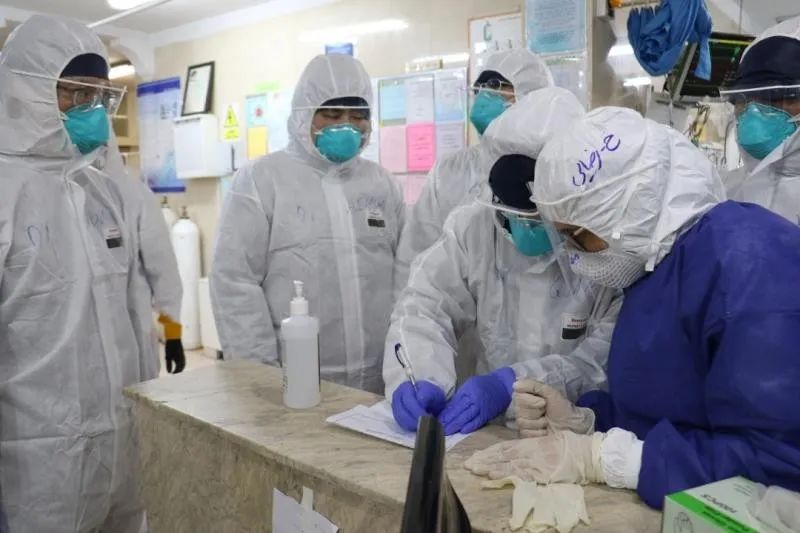
China expert group visited Iranian local hospitals. (Image provided by the interviewee)
From the Lunar New Year in China to the traditional Iranian New Year, these China experts have been racing against the epidemic all the way without stopping. After eating the love breakfast, they immediately set off and started a new day’s intense work.
An expert from China who moved to Iran from Wuhan said that he hoped that Iran would welcome spring flowers like Wuhan as soon as possible.
Looking forward to, looking forward to, the pace of spring is closer.
Iran’s most deserted traditional festival
Look forward to spring.
Around March 20th every year is the most important traditional festival in Iran — — Nowruz, the Iranian New Year. Similar to the custom of celebrating the Spring Festival in Chinese, local people usually visit relatives and friends and greet each other during the festival to welcome the coming of spring.
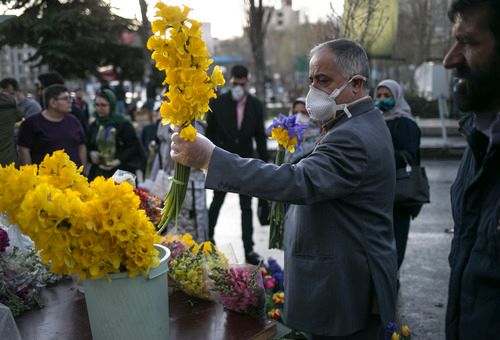
On March 19, Iranian people wore masks to pick flowers and prepare to celebrate the festival. Xinhua news agency
However, this holiday season, Iran is still mired in the epidemic, and the confirmed data is still in a period of rapid growth. As of March 20th, the number of confirmed cases in COVID-19 has approached 20,000. According to the Iranian Ministry of Health on the 19th, an average of 50 people are diagnosed every hour in Iran.
The Iranian government called on residents to stay at home to celebrate the festival and prevent the spread of the epidemic.
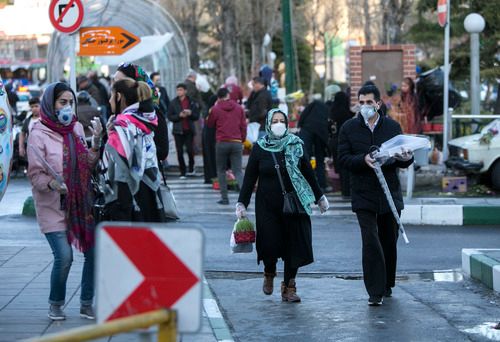
On March 19, Iranian citizens wore masks to go shopping and prepare to celebrate the festival. Xinhua news agency
According to Xinhua News Agency, many Iranians canceled their travel plans and stayed at home for the holidays. On the first day of the Iranian New Year, Tehran, with a permanent population of more than 8 million, is like an empty city, standing silently in the mountains at the southern foot of the Elbers Mountains.
"I have lived for almost 60 years and have never seen the streets of Tehran so deserted." Local resident Motametti told Xinhua News Agency.
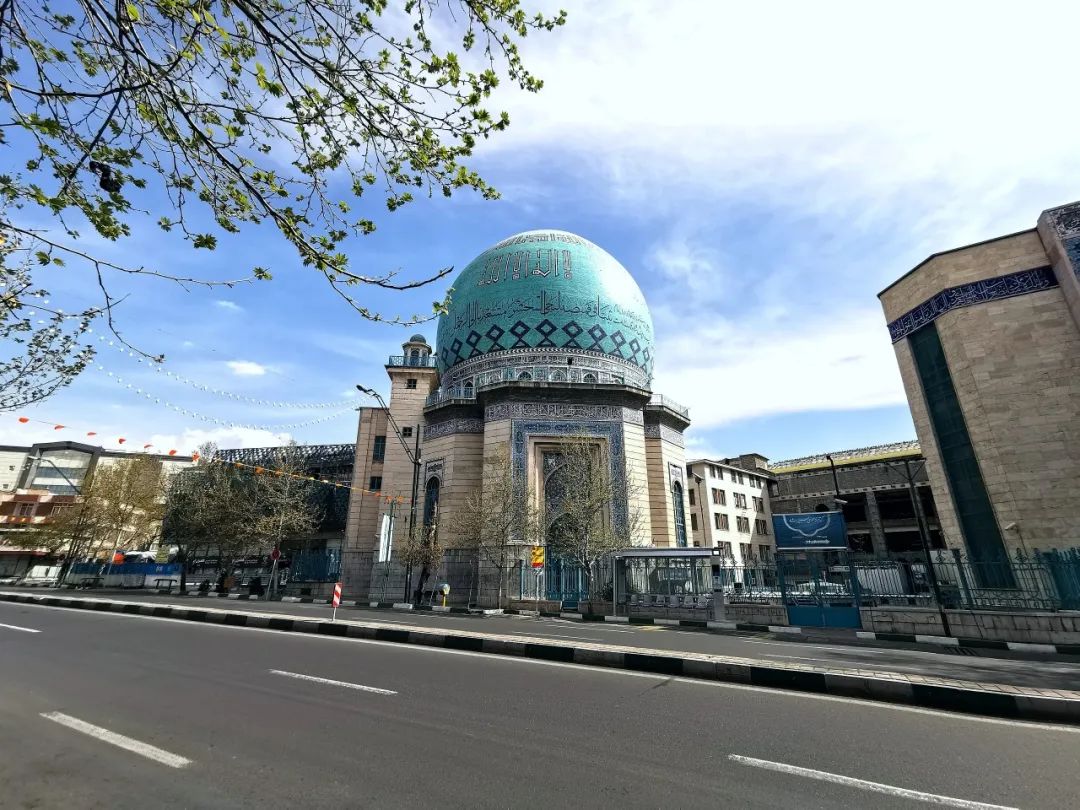
On March 20th, the streets of Tehran, the capital of Iran, were very deserted. Xinhua News Agency reporter Tony chen photo
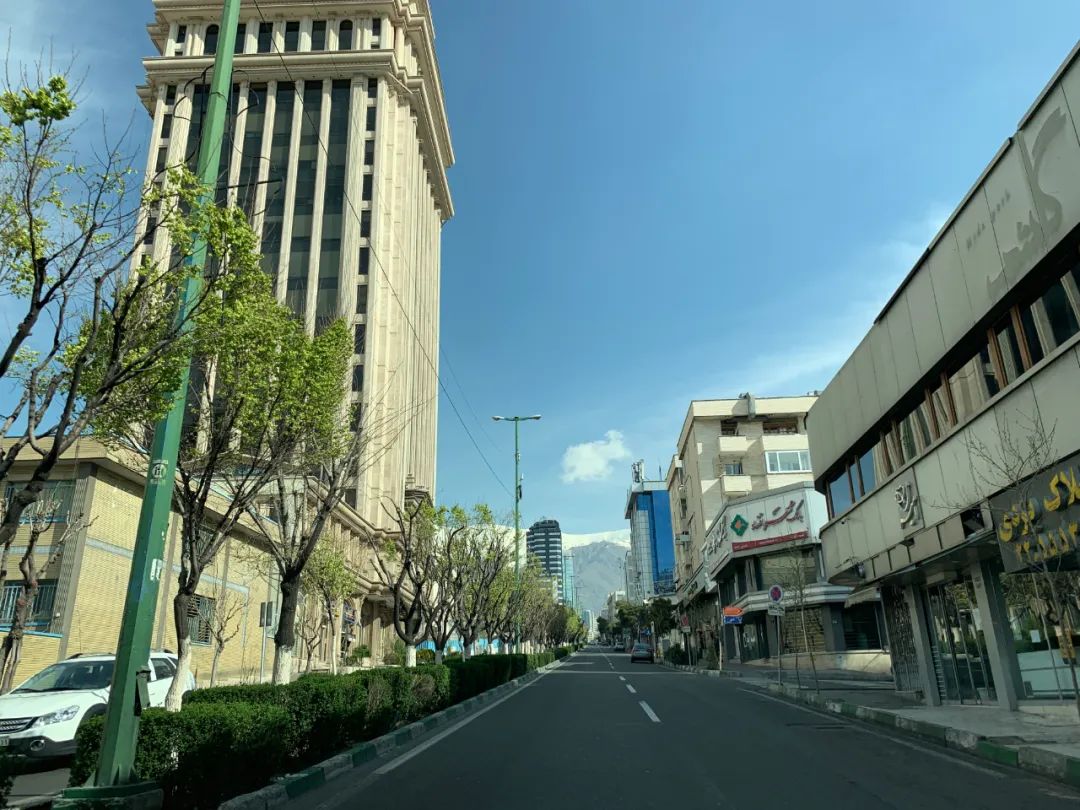
On March 20th, the streets of Tehran, the capital of Iran, were very deserted. Xinhua News Agency reporter Tony chen photo
From Shanghai and Wuhan to Iran
Race against time all the way
The epidemic situation in Iran has spread rapidly and the death rate is high. It is no exaggeration to say that epidemic prevention and treatment work must race against time.
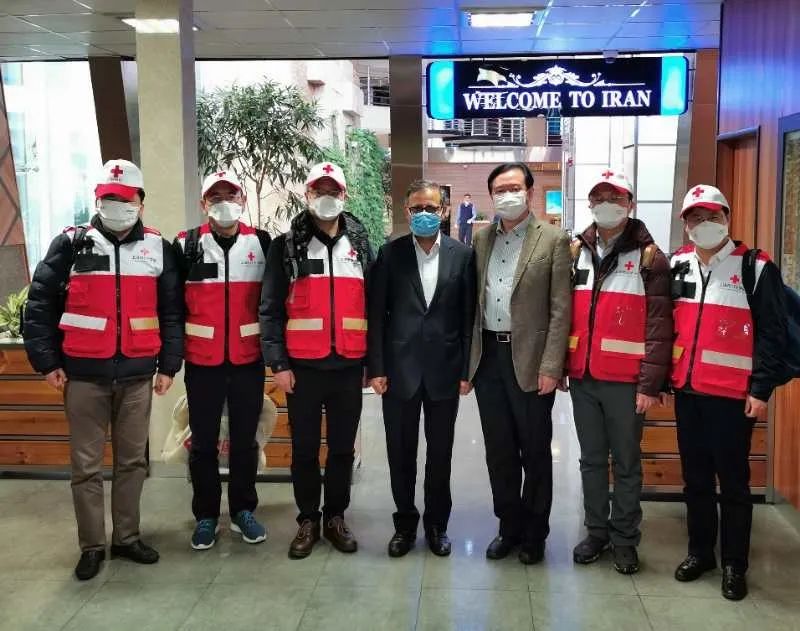
In the early morning of February 29th, a team of five volunteers from China Red Cross Society arrived in Teheran, the Iranian capital, with some medical supplies from China. Chang Hua, China’s ambassador to Iran, and officials from the Iraqi Ministry of Health greeted him at the airport. (Image from official website, Embassy of China in Iran)
Since February 29th, China’s expert group has been working in Iran for 20 consecutive days, and has been going to various parts of Iran to discuss and exchange with Iranian medical workers and experts in the field of public health, and to explore the treatment plan.
Zhou Xiaohang, leader of the expert group and director of the Shanghai Red Cross Relief and Rescue Department, said that in order to fight the epidemic, most members of the expert group canceled all vacation plans and have been working since the Spring Festival, and some of them were transferred immediately after finishing their work in the domestic anti-epidemic front line.
Qian Zhiping, a member of the expert group and chief physician of Shanghai Public Health Clinical Center, has been working in Shanghai’s anti-epidemic front line since January 20th, which can be said to be from China New Year to Iranian New Year.
"It’s a pity that I have been out all the time and have been home several times occasionally, but I haven’t had time to eat a meal at home." Qian Zhiping said, "I didn’t have much rest after coming here. I had work arrangements every day. After coming for 20 days, I walked with my colleagues to the nearby community as far as possible and inspected the protection of residents."
I hope Iran will be as blooming as Wuhan as soon as possible.
Wang Dongsheng, a respiratory doctor in the First Affiliated Hospital of China University of Science and Technology, and Li Ming, a laboratory doctor, were new members who reinforced Teheran in March.
Wang Dongsheng just finished his anti-epidemic task in Wuhan. He said that Wuhan has gradually returned to normal, hoping to bring China’s anti-epidemic experience to Iran, so that Iran can be as blooming as Wuhan at an early date.
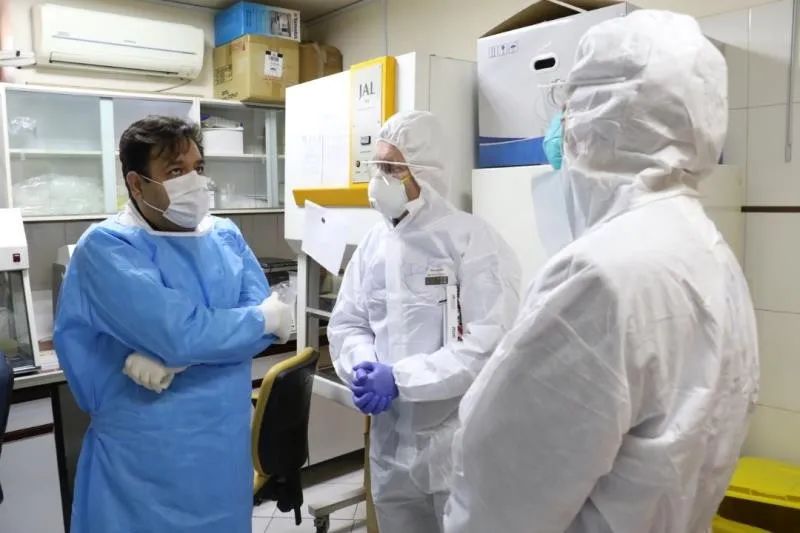
China experts are communicating with local doctors. (Image provided by the interviewee)
The expert team covers experts in many fields such as disease control, prevention and clinic. In Iran, they exchange experiences with the local Ministry of Health and frontline medical workers every day. After returning to the residence in the evening, we will have a collective meeting to summarize the opinions exchanged with local counterparts and experts, and then jointly study the prevention and treatment plan.
There is no point in going to work and no point after work. This is the normal state of their work in Iran.
The Iranian people kept saying: Thank you China, thank you.
What makes the China expert group particularly gratified is that both the detection ability of Iranian hospitals, people’s awareness of protection and the cure rate have been significantly improved. Experts from China gave everything to each other, which was also well received by local professionals and the public.
Zhou Xiaohang said, "The Iranian people are very enthusiastic about us. No matter the partners we meet at work or the people we meet on the street, when they see that we are wearing China Red Cross jackets, they will come over and ask for a group photo, and they will keep thanking us and saying, ‘ Thank you, China. Thank you. ’”
He said that at present, Iran’s previous measures have achieved certain results, but Iran will still face a critical period of anti-epidemic in the next two weeks and still cannot relax.